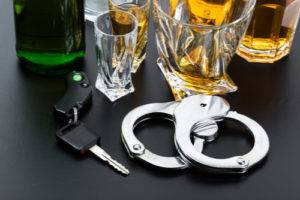
The moments leading up to a DUI stop may be among the most terrifying you ever experience. While you might expect that the investigating officer will ask you to take certain tests during the stop, you may not realize that you have previously agreed to some of these tests when you got your driver’s license. Florida’s Implied Consent Law states that any individual who accepts the privilege of driving in the state has given his or her consent to lawful requests for chemical testing. There’s no way around consent if you hope to drive in Florida, but it can hurt you if you’re suspected of DUI.
If you’re not sure how implied consent will affect your DUI case, talk to knowledgeable DUI lawyer Brian P. Gabriel. He’s challenged test results from chemical tests for more than 30 years, with many successful results. He will walk you through your charge and the entire criminal process so you can have the best possible chance at a favorable outcome.
What is Implied Consent in Florida?
When you get your Florida driver’s license, you give the police permission to seek evidence of drunk driving by agreeing to give them a breath, blood, or urine sample from which they may read your blood alcohol content (BAC). Implied consent laws impose penalties on drivers who refuse to take these tests when police officers lawfully request them, which they may when they have reasonable cause to believe the drivers were under the influence of alcohol or drugs. The penalties for refusing these tests include a license suspension that’s separate from any penalties that may be imposed upon a DUI conviction.
Although there are penalties for violating implied consent, a significant number of motorists do so each year. The reasoning is that you want to avoid giving the police evidence they can use against you in court; however, your refusal may be used as proof that you knew you were too drunk to drive.
What are field sobriety tests?
Field sobriety tests aim to gauge your physical and mental faculties during a DUI stop. These tests include:
- Horizontal gaze nystagmus
- One-leg stand
- Walk-and-turn
These tests do not give police any physical evidence of DUI, and there’s no law preventing you from refusing them in Florida, as they’re not covered by the state’s Implied Consent Law. Keep in mind that police may still arrest you if you refuse field sobriety tests. They can, however, use your performance as evidence. They can, however, use your performance as evidence. Ultimately, the less evidence you give to police officers, the less the state has to work with when attempting to prosecute your DUI case.
Which tests can I refuse to take at a DUI stop?
If you’re thinking about which tests you should refuse to take during a DUI stop, it might make more sense to refuse a field sobriety test rather than a chemical test. Usually, there’s no advantage for refusing a BAC test, even if you’re ultimately determined to be legally drunk, which will happen if your BAC reaches 0.08 or higher. Granted, police can still arrest you with a lower BAC if they believe you show signs of impairment.
Your refusal can be used as evidence against you, as the prosecutor can argue that you knew you were intoxicated because you didn’t want to take the test. Generally, it’s advised not to violate implied consent by refusing a BAC test.
Penalties for Violating Implied Consent in Florida
As stated, you can be penalized for refusing a breath or blood test during a DUI investigation. In Florida, if it’s your first refusal, you may be subject to a one-year license suspension. If it’s your second or subsequent refusal, you could face an 18-month license suspension and a fine of up to $1,000. You can also be sentenced to a period of one year in jail or 12 months of probation.
Working with an attorney early on in your DUI case could help you avoid this penalty, which would be in addition to any punishment you may face for your DUI if you’re convicted.
Talk to a Knowledgeable DUI Lawyer About Your Case
DUI is a first-degree misdemeanor offense that could lead to lifelong obstacles. Don’t rely on just any lawyer to challenge the charges against you. At this uncertain time, you need the certainty you can only get from an assertive attorney with three decades of experience helping people in situations similar to yours.
Brian Gabriel of The Law Office of Gabriel & Gabriel has defended DUI charges throughout Palm Beach County for over 30 years and thoroughly understands the challenges presented by breathalyzer tests in Florida. Having led the fight against the Intoxilyzer 8000, the machine DUI suspects breathe into for evidence, he understands what’s at stake in your DUI case. Call 561-622-5575 or complete a contact form for a free case evaluation.


